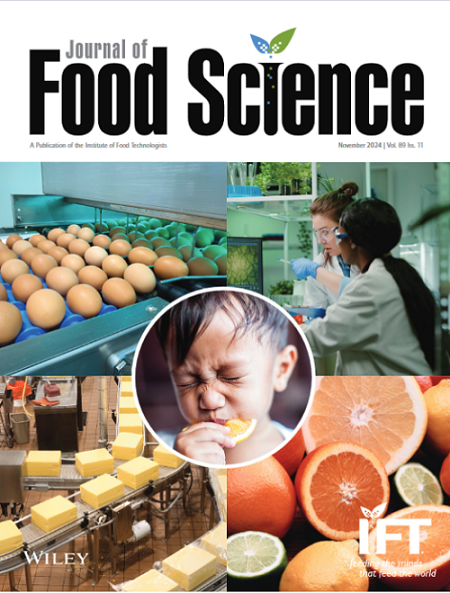Growth responses of Aspergillus and Penicillium species under modified atmospheric conditions: An in vitro and partially baked roll study
Abstract
The present study focuses on the shelf-life extension of partially baked rolls using modified atmosphere packaging in combination with oxygen scavenging technology. The strategy used was to isolate and identify molds from a bakery environment and to test the effect of CO2 on their growth. In vitro testing was performed as a preselection for mold strains that are able to grow under 80% CO2, after which the growth on partially baked rolls was investigated. It was found that strains of Penicillium are more resilient to high CO2 concentrations, compared to Aspergillus strains, both in vitro and on partially baked rolls. Growth of P. crustosum SB20 and P. paneum SB14; and A. clavatus SB03 and A. oryzae SB02 on partially baked rolls was delayed by 7 and 14 days, respectively, under 80% CO2 and 20% O2 compared to normal atmosphere. The delay in growth of A. clavatus SB03 could further be extended by 2–3 days, with an oxygen concentration reduced to 1%; however, a reduction to 0.5% oxygen no longer made a difference. The growth of P. paneum SB14 was not influenced by the reduction of oxygen. The only condition under which both strains were not able to grow within a period of 61 days was under 80% CO2 and 20% N2, with an oxygen absorber inside the packaging. The study demonstrated that to effectively examine the impact of modified atmosphere on the mold-free shelf-life of bakery products, it is crucial to select and conduct tests using mold species from the production environment.
Practical Application
The influence of CO2 on the growth and sporulation of mold varies depending on the tested strain and species. To analyze the effects of packaging conditions (modified atmosphere packaging or O2 scavengers) on the mold-free shelf-life of bakery products/food products, it is essential to utilize molds that have been isolated from either the product being tested or the manufacturing environment.

 求助内容:
求助内容: 应助结果提醒方式:
应助结果提醒方式:


